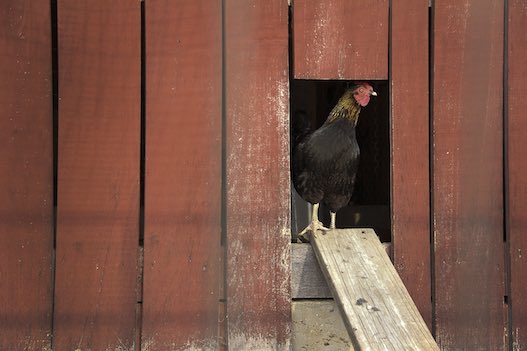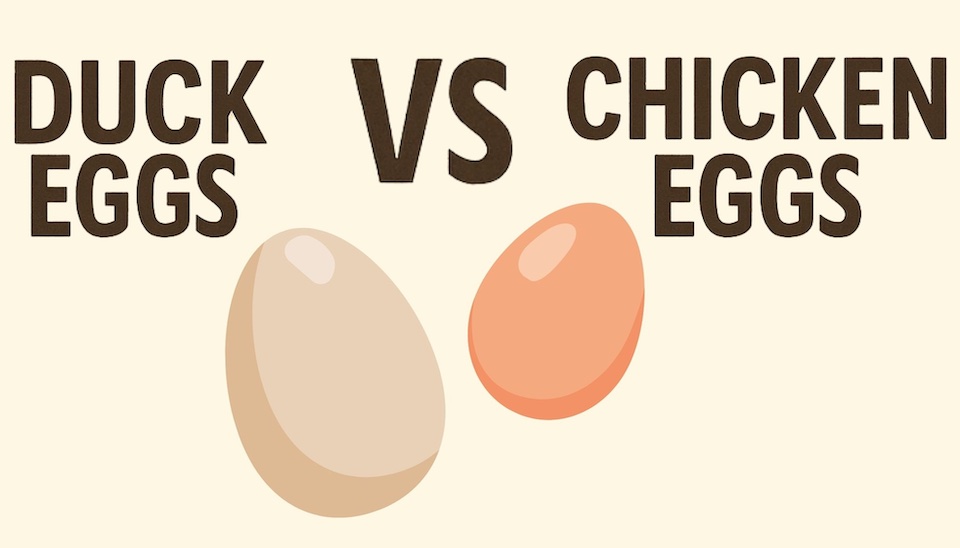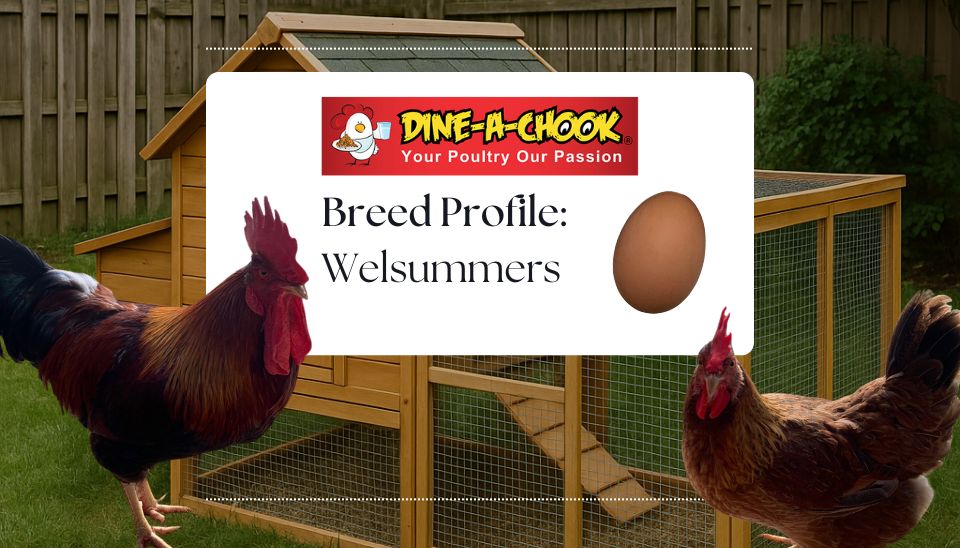How To Keep Wild Birds Out of the Chicken Coop
How to Keep Wild Birds Out of the Chicken Coop
Wild birds are one of the main sources of parasites and disease for backyard chickens. In addition to stealing food, wild birds can spread diseases such as Avian Influenza to backyard chicken flocks.
With the current Avian Influenza outbreaks in NSW, Victoria and the ACT, as well as the world-wide Avian Influenza threat, it is even more important to keep wild birds out of your chicken coop.
However, according to the NSW DPI, waterfowl such as wild ducks are the most likely carriers of Avian Influenza, while common pest birds like sparrows and pigeons are not major carriers, although they can still transmit disease to your chickens.
Even if you aren’t in an Avian Influenza outbreak area, you should be taking steps now to keep wild birds away from your chickens. Not only will this help protect your birds from Avian Influenza, it will also reduce your flock’s exposure to other parasites and diseases.
You can keep wild birds away from chickens by securing the coop and run, preventing wild birds from accessing your chickens’ food and water, making the area around the coop less appealing to wild birds and using bird deterrents. This has the added benefit of deterring rodents and predators too!
Key Takeaways
Wild birds can transmit parasites and diseases like Avian Influenza to your backyard chickens. Keeping wild birds away is important for disease prevention. Keep wild birds out of the coop by:
- Securing the Coop: Inspect and seal gaps, use small mesh wire, and install a chicken-sized door.
- Food Control: Keep Feeders inside the coop, avoid leaving food out, use covered chicken feeders, store feed in secure containers and collect eggs promptly.
- Water Management: Keep Waterers inside the coop, use covered Waterers, and ensure your water source is clean.
- Environmental Modifications: Trim trees, remove roosting sites, cover compost, and use bird deterrents.
Strategies to Keep Wild Birds Out of the Chicken Coop
1. Secure the Coop
Seal Gaps and Holes
Inspection: Conduct a thorough inspection of the coop, looking for any gaps, holes, or weak spots. Pay close attention to areas around the roof, foundation, and any points where different materials meet.
Materials: Cover any gaps where wild birds can enter. Chicken wire might keep chickens in, but some wild birds are small enough to fit through the holes! Small mesh aviary wire (bird wire or mouse wire) should be used, or wood or metal. If using wire mesh, ensure the edges are fastened securely and overlap and fasten mesh at the seams for extra protection.
Ventilation: Ventilation openings can be an entry point for wild birds and rodents. Cover ventilation openings with fine mesh or wire to prevent small birds such as sparrows from squeezing through while still allowing for adequate airflow.
Install a Chicken Door
If you leave the coop open to allow chickens out during the day, it will be impossible to completely prevent wild birds from entering. But using a small chicken-sized door close to the ground, rather than opening a person-sized door, will deter many bird species from entering the chicken coop. Even food is not enough to tempt some species to enter the enclosed space of the coop, particularly from such a small opening!

A small, enclosed run with its own small, chicken-sized door can also help deter birds, as they will have to pass through two doors and two enclosed spaces to reach the coop.
Adding a hood over the door, or a curtain inside, can also help. Although wild birds can learn to do anything a chicken can do, if they feel safe enough to do so!
2. Control Food Sources
Wild birds generally only come to the chicken coop for food. So preventing access to food is the main way to prevent wild birds hanging around.
Keep Feeders Inside the Coop
Feeders should be kept inside the coop, and the coop should be secured against wild birds as detailed above.
Never Leave Feed Out
Avoid feeding wild birds if you keep chickens, and never leave chicken food out where wild birds can access it. This includes scraps and treats.
If you give your chickens scraps, use a dish and clean the scraps up after your chickens have eaten their fill. Don’t leave the dish out where wild birds can access it and pick up all uneaten scraps. If wild birds are a problem, stay with your chickens to keep any pest birds away while your chickens are eating or feed your chickens only inside the coop.
When cleaning up scraps, use a dustpan and brush or a shovel to be sure that no feed remains on the ground.
Use Covered Feeders
Dine-A-Chook Feeders can help deter wild birds. Combined with other strategies, a Dine-A-Chook Feeder will help keep wild birds out of the coop by making sure feed isn't visible. It will also prevent spilled feed, which is often the main attractant for wild birds.
Store Feed Properly
Containers: Use galvanized steel trash cans or heavy-duty plastic bins with secure lids to store feed. Ensure containers are kept in a locked shed or similar structure to prevent wild birds and other pests from accessing them.
Collect Eggs Regularly
Some wild birds, such as crows, steal chicken eggs. Collecting eggs regularly removes this food source, deterring birds. If you are not home during the day, a Roll-Away Nesting Box can also help deter wild birds attracted to the coop for the eggs.
3. Control Water Sources
Keep Waterers Inside the Coop
Waterers should be kept inside the coop, and the coop secured against wild birds as detailed above.
Use Covered Waterers
Choose a Nipple or Cup Waterer. Not only is the water less accessible to wild birds, but the outlet design prevents contamination.
Open waterers, including hanging bell waterers, have a much higher risk of contamination with disease and are more accessible to wild birds.
Chickens should never be given water in an open container such as a bucket, as this is not only easily contaminated but very attractive to wild birds.
Because waterfowl are often carriers of Avian Influenza, chickens should not drink from puddles or dams, particularly those frequented by wild birds. This is good practice anyway, as dirty water carries many parasites and diseases.
Ensure Your Water Source is Clean
Water can transmit parasites and diseases. Dam water, particularly where the dam is frequented by wild birds, is not recommended for chickens. The same goes for creeks and rivers. Rainwater is also a risk, as it may be contaminated with bird droppings.
The best water source for chickens is mains water, which has been treated to ensure it is free from parasites and diseases. If you do not have access to town water, water can be boiled for 3 minutes and allowed to cool, or treated with chlorine (0.5mg/L) to sanitise.
4. Modify the Environment
It is also possible to deter wild birds my modifying the environment around your chicken coop.
Eliminate Roosting Sites
Keep Coops Clear: Remove vegetation from around the coop. The more exposed a chicken coop is, the less appealing it is to most wild bird species.
Tree Trimming: Regularly trim trees and bushes near the coop to remove potential roosting and nesting sites for wild birds, particularly branches overhanging the chicken coop.
Structures: Modify or remove any nearby structures, such as sheds or fences, that provide perches for wild birds.
Remove All Food Sources
Compost: Compost bins and piles shouldn’t be kept in the chicken coop anyway. But they also attract wild birds, which is a reason to keep them as far from the coop as possible. Ensure your chickens can’t access the compost, and keep compost well-covered to avoid attracting wild birds.
Fruit Trees: Planting fruit trees around the chicken coop or run is a good way to shelter your chickens and ensure fallen fruit and pests are eaten by your flock. But fruit trees also attract wild birds as a source of food. Netting trees using wildlife friendly fruit tree netting will deter wild birds. Never leave ripe fruit on trees or fallen fruit on the ground. As with other food sources, any fallen fruit should be picked up daily to deter wild birds.
Use Bird Deterrents
Reflective Tape: Install reflective tape around the coop and run. The movement and reflections can scare birds away. Hanging old CDs on strings also works!
Bird Spikes: Place bird spikes on flat surfaces like the top of fences, roofs, and ledges to prevent birds from landing.
Scare Devices: Use scare devices such as plastic owls, hawks, or snakes. Move them around regularly to maintain their effectiveness. Devices with movement sensors that activate lights, sound or sprinklers can also be effective. However, it is important to remember that these types of devices may also scare your chickens, so you need to ensure they are positioned so they don’t cause stress to your flock.
Guardian Animals: Guardian animals such as donkeys, maremma dogs and geese are usually used to protect chickens from predators. However, dogs, especially, can be trained to keep wild birds away from the chicken coop. As with scare devices, it is important to ensure guardian animals are not causing stress to your chickens. It is illegal to let pets harm wildlife, but a dog can effectively keep wild birds away from a chicken feeder just by barking!
5. Secure the Chicken Run
Securing the chicken run against wild birds is also recommended. However, depending on the size of your chicken run, this might not be possible.
If you have a large run or your chickens free-range on your property, it is worth considering building a small, completely enclosed run close to the coop. After all, if there is an Avian Influenza outbreak in your area, you will be required to keep your birds under cover, which means they won’t be able to free-range, and both you and your chickens will be very grateful for the extra space provided by an enclosed run area.
Building an Enclosed Run: If you are building an enclosed run, particularly a small one, consider a solid roof. This provides the best protection from wild birds and other predators, as well as keeping the chicken run drier and providing shelter for your birds. Corrugated polycarbonate roofing sheets are available in a range of shades, so that you can still allow sunlight into the run.
Enclosing an Existing Run: One of the easiest ways to enclose an existing run is with good quality bird netting. Lightweight netting effectively keeps wild birds out, and in small runs can often form a roof between existing fencing with no extra infrastructure. It can even be strung as a roof using rope or wire as supports, as long as it is stretched tightly and well-secured.
Conclusion
In conclusion, keeping wild birds out of your chicken coop is essential for maintaining the health and safety of your backyard flock. Wild birds can introduce parasites and diseases, including the highly contagious Avian Influenza, to your chickens.
By securing the coop, controlling food and water sources, and modifying the environment, you can effectively deter wild birds and protect your chickens from potential threats. Implementing these strategies not only helps in preventing disease transmission but also deters other pests and predators. Taking proactive measures now will ensure a healthier, safer environment for your chickens and peace of mind for you.
Learn more about how to prevent Avian Influenza in your backyard chickens:
- Avian Influenza - The Backyard Chicken Keeper's Guide
- How To Sanitise the Chicken Coop
- Backyard Poultry Biosecurity - Preventing Disease in Your Flock
- How To Keep Your Family Safe from Chicken Diseases
- Boredom Busters for Chickens that Can't Free-Range
Rachael at Dine-A-Chook Australia




